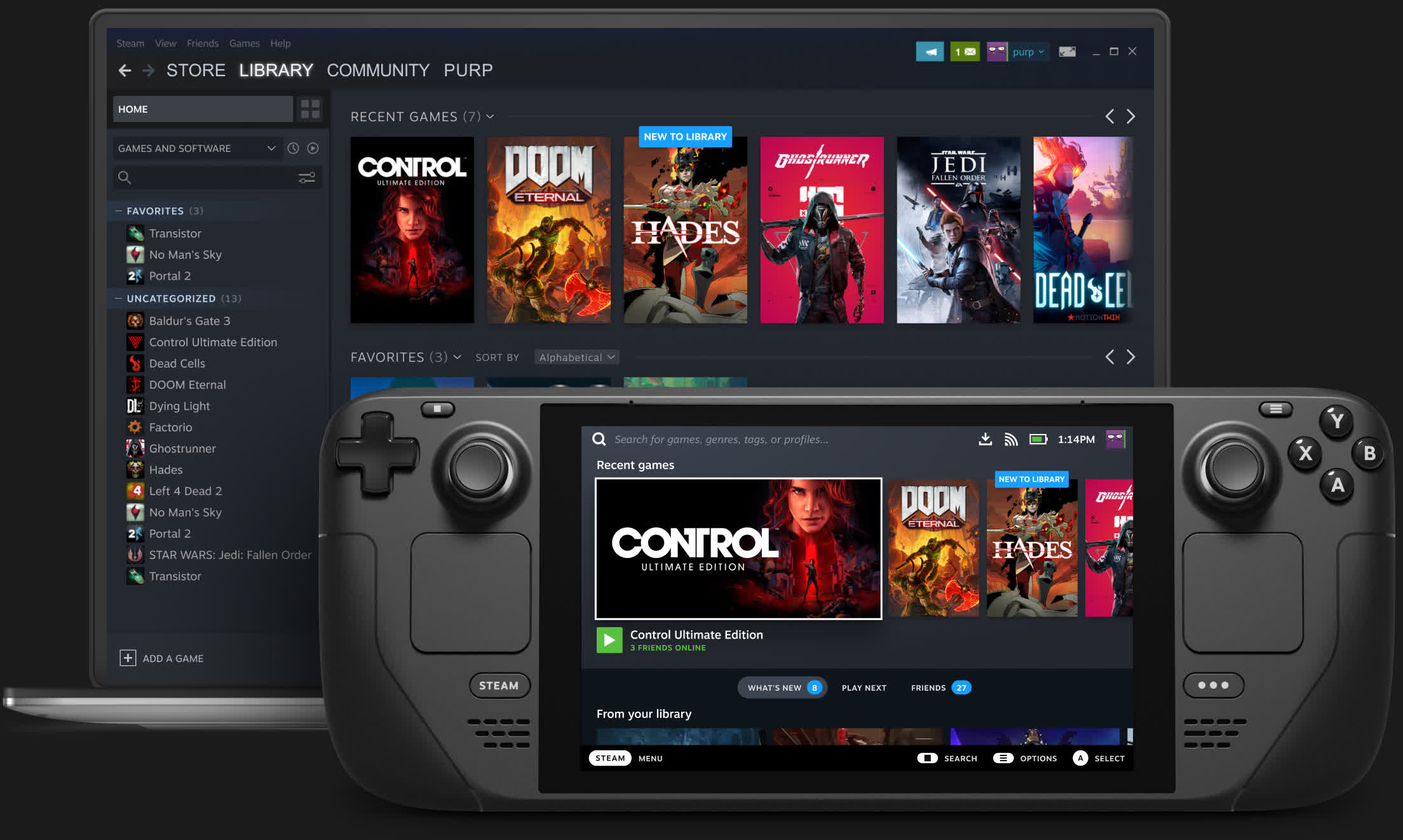What just happened? Yesterday, Valve revealed the Steam Deck, its first handheld gaming device. Though it has the appearance of a dedicated console like the Nintendo Switch, the Deck is a full-blown PC inside, with all the benefits that come with that. The concept is so good that even Tim Sweeney (CEO of key Valve competitor Epic) took to Twitter to praise the device, calling it an “amazing move.”
It might seem strange for Sweeney to bother discussing a competitor’s new products at all. Surely he’s just lending Valve some free marketing, right? Why not keep his thoughts to himself, or even lampoon the device for its shortcomings?
The answer is rather simple: whatever you might feel about Sweeney or his business practices at Epic (disclaimer: I have never and likely will never purchase a game from the Epic Games Store), he cares about PC gaming as a platform and welcomes innovation that pushes our favorite medium forward. As Sweeney points out in his tweet, which you can see below, the Steam Deck is an “open platform” where users can install whatever software they please.
Amazing move by Valve! A handheld PC/console hybrid running the SteamOS fork of Arch Linux, and it’s an open platform where users are free to install software or their choosing – including Windows and other stores. https://t.co/jf5TWUWGP5
— Tim Sweeney (@TimSweeneyEpic) July 15, 2021
By default, the Deck runs the SteamOS fork of Arch Linux, which allows Steam and its games to run and play as seamlessly as possible. However, you could quite easily boot the machine off of Windows or any other OS you prefer. You can even, Sweeney notes, install other game stores (such as Epic, perhaps?).
Yes, the Deck’s storage capacity is limited, with even the high-end model capping out at 512GB by default (without third-party expansions). Yes, the screen is only 800p. However, according to Valve, it’ll still run the latest AAA games well and operate for at least a couple of hours at a time when undocked.

As for the opinion of Valve’s CEO, Gabe Newell feels confident that the Steam Deck will sell in the “millions,” thanks to its “very aggressive” pricing and, hopefully, its balance of cost and performance. Newell is not unbiased here, but it’s not as if the company has been pumping out terrible hardware as of late — the Valve Index was pretty darn good, by all accounts, and even the ill-fated Steam Controller had a few fans.
All in all, the Steam Deck is an exciting device, and we’re very much looking forward to seeing what reviewers and ordinary end-users think when the first units begin shipping out in December. If you want to be among the first to grab one, reservations are open now for $5 a pop.

